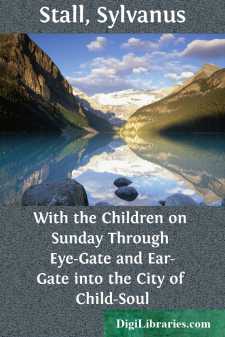Categories
- Antiques & Collectibles 13
- Architecture 36
- Art 48
- Bibles 22
- Biography & Autobiography 813
- Body, Mind & Spirit 142
- Business & Economics 28
- Children's Books 16
- Children's Fiction 13
- Computers 4
- Cooking 94
- Crafts & Hobbies 4
- Drama 346
- Education 46
- Family & Relationships 57
- Fiction 11829
- Games 19
- Gardening 17
- Health & Fitness 34
- History 1377
- House & Home 1
- Humor 147
- Juvenile Fiction 1873
- Juvenile Nonfiction 202
- Language Arts & Disciplines 88
- Law 16
- Literary Collections 686
- Literary Criticism 179
- Mathematics 13
- Medical 41
- Music 40
- Nature 179
- Non-Classifiable 1768
- Performing Arts 7
- Periodicals 1453
- Philosophy 64
- Photography 2
- Poetry 896
- Political Science 203
- Psychology 42
- Reference 154
- Religion 513
- Science 126
- Self-Help 84
- Social Science 81
- Sports & Recreation 34
- Study Aids 3
- Technology & Engineering 59
- Transportation 23
- Travel 463
- True Crime 29
What a Young Husband Ought to Know
by: Sylvanus Stall
Description:
Excerpt
CHAPTER I.
THE RELATION OF MARRIAGE.
The young man who marries finds himself in an entirely new relation in life. Grand as life may have been in the past, the present and the future are full of new meaning, of grander possibilities and of larger blessing. God has meant that love should come to man to glorify life and to lift the lower nature of husband and wife into higher realms of thought and being; to transform, deepen, broaden and soften. In them love becomes the potent source of mightiest inspirations. The husband's duty seemed formerly to be to care, to arrange and to provide only for himself. Now he has assumed additional responsibilities. He is no longer to live for himself, but for his wife, his children, and in a larger sense for his descendants—for the good of the race. He is to continue by transmitting himself, that life may remain when he is gone. What he does involves the interests of his wife, and of those who are to come after him. Love is to conquer selfishness. He is to rise above himself, and the present good and future happiness of others are to constitute his well-being.
His present and future happiness will be dependent upon a clear apprehension of the fact that what he is will determine what his descendants are to be after him. He should comprehend the fullest meaning of what is taught in the statement that "we are part of all the people whom we have met," the result of past influences and previous life. What we have been and are, that we transmit. The responsibilities, are grave, but the state of two congenial souls made one in happy marriage is the grandest and most blessed earthly condition conferred upon man by God himself. It meets the requirements of our being, and, when properly understood and faithfully conformed to, brings the largest happiness that mortals are capable of upon earth. Husband and wife, parents and child, home and country, form the centre of all that makes life dear.
The purest, noblest and most unselfish aspirations and purposes derive their strength and being from the sweet influences which have their beginning and their continuance in this power which draws men and women together in happy and holy wedlock. By these sweet influences the most perfect natures are moulded and ennobled. By them are formed the strongest ties that hold humanity to the accomplishment of every high and holy endeavor. Where the mind has continued pure, and the character untarnished, and the life unsullied by the touch of social evil, the sexual impulse does not die in that cradle of our being where God has given it birth but marches like a mighty conqueror, arousing and marshalling the mightiest human forces in every department of man's nature. It formulates his purpose, quickens his imagination, and calls into exercise his united powers in the attainment of the world's greatest and grandest achievements in art, in letters, in inventions, in philosophy, in philanthropy, and in every effort that is to secure the universal blessing of mankind.
It is under the awakening of the reproductive life that the fields put on their verdure, the flowers unfold their beauty and fragrance, the birds put on their brightest plumage and sing their sweetest song, while the chirp of the cricket, the note of the katydid, is but the call to its mate—for the many-tongued voices which break the stillness of field and forest are but the myriad notes of love. To this universal, God-given passion, man owes his love of color, his love of beauty and sweetness in art and music, his love of rhythm in poetry, of grace in form, in painting, in sculpture; and from it not only springs the love of the beautiful, but even the perception and recognition of all that which is pleasing and lovely.
This is the emotion that strengthens every faculty, quickens every power, animates, modifies, ennobles, purifies and sweetens the entire being, and makes our life upon earth, when directed by godly purposes, the unfolding and enriching of those nobler powers of the soul which are to find their fullest fruition and perfection in heaven itself....



